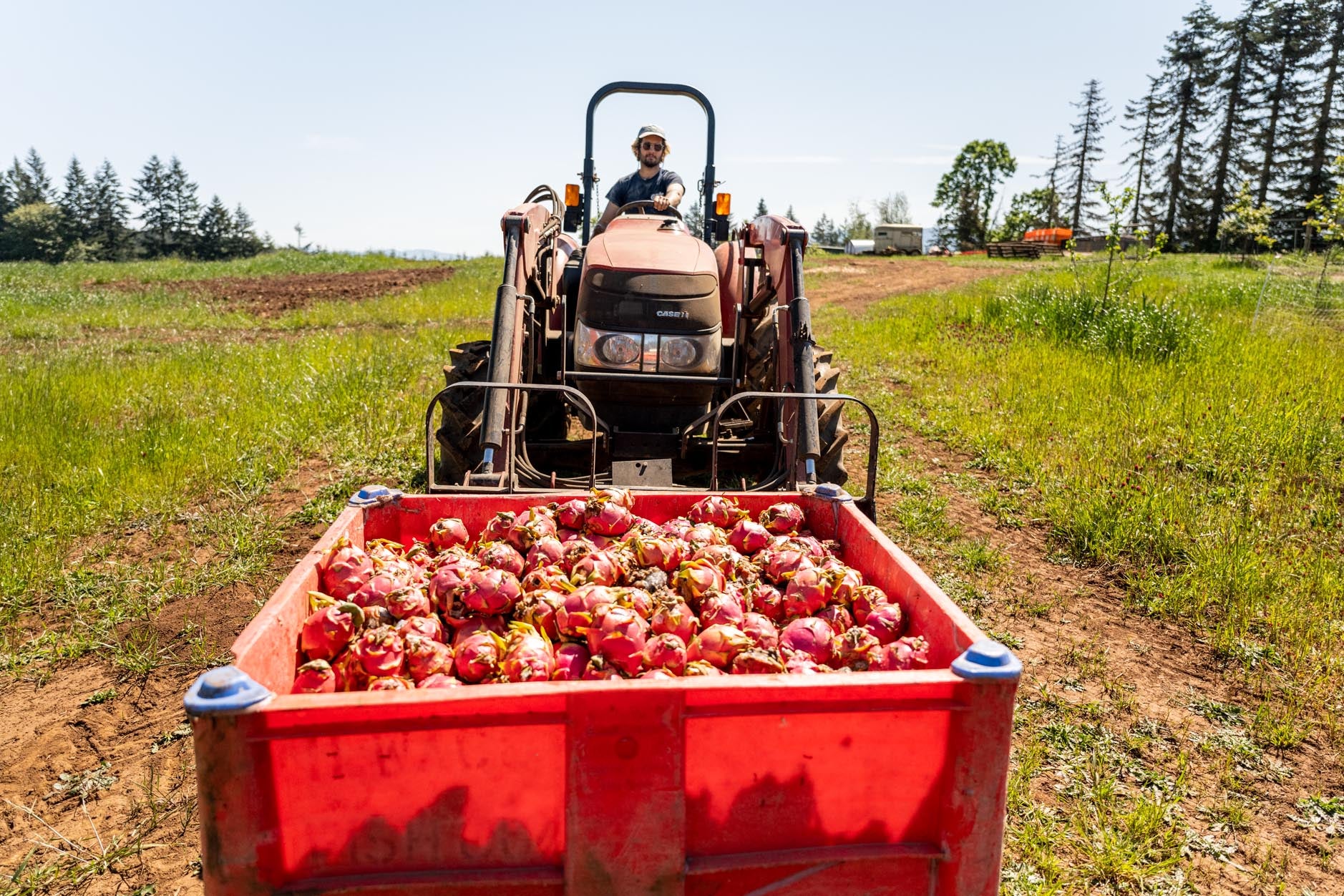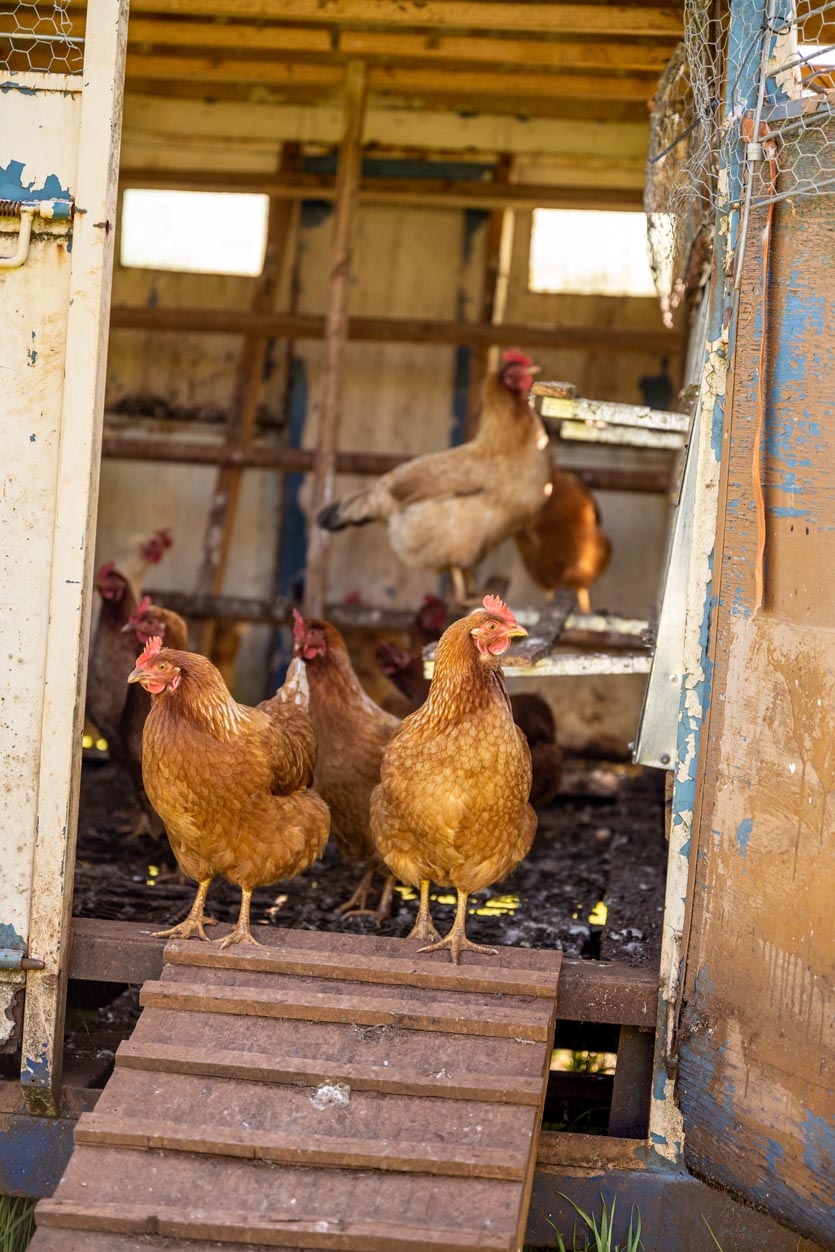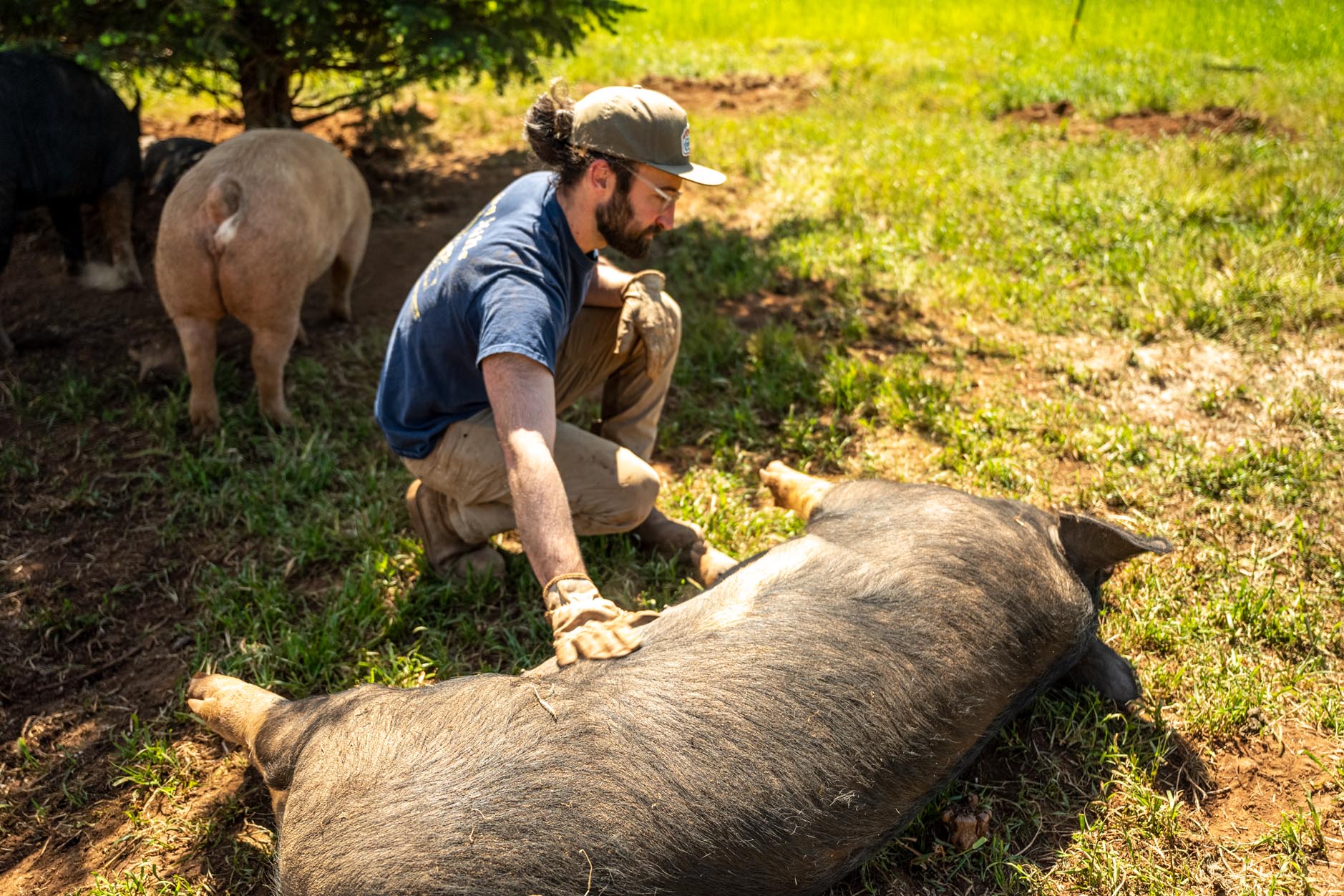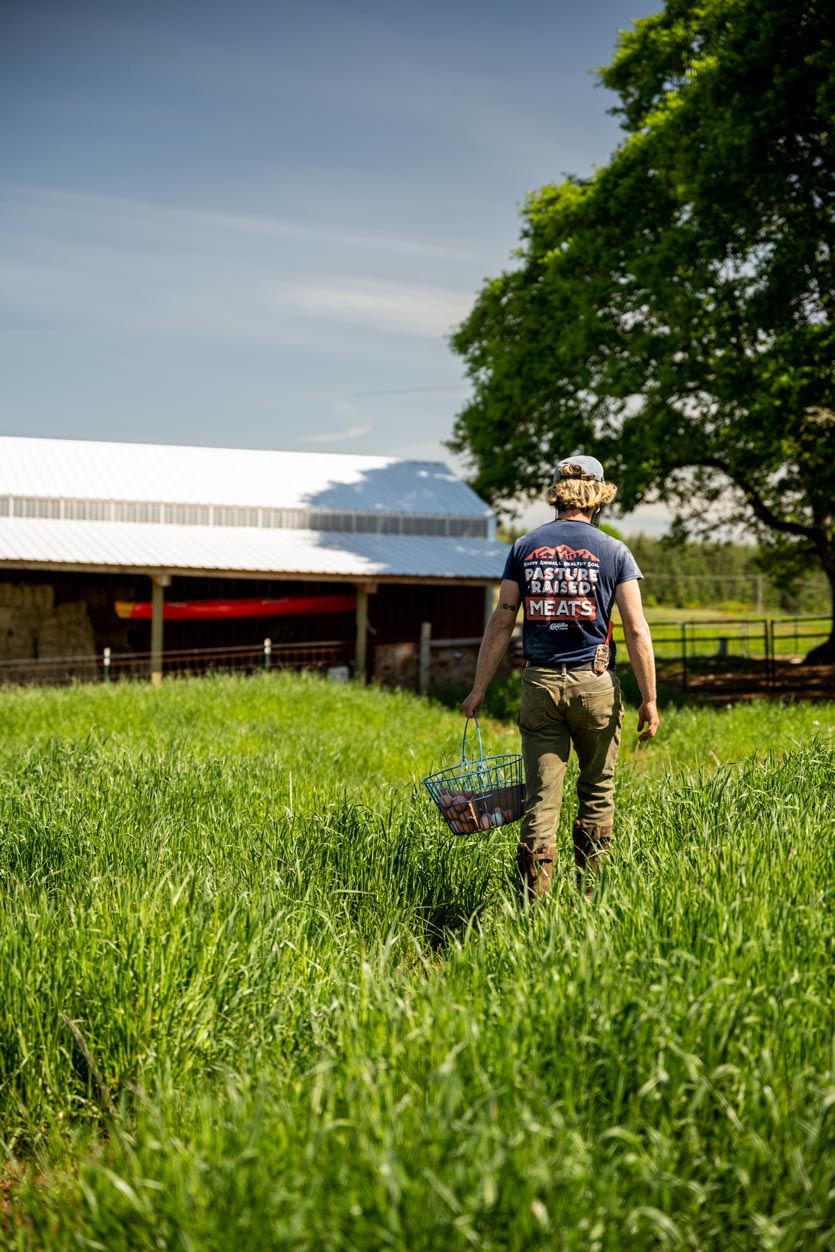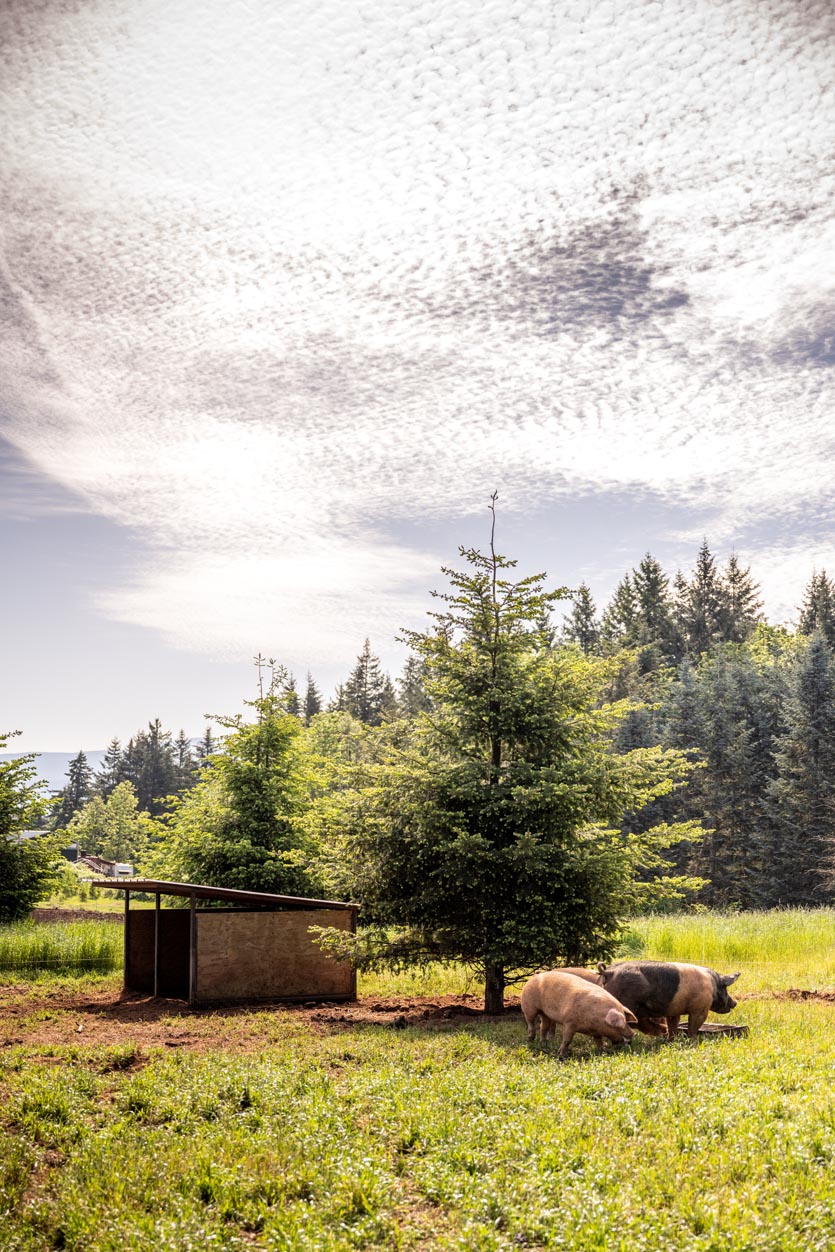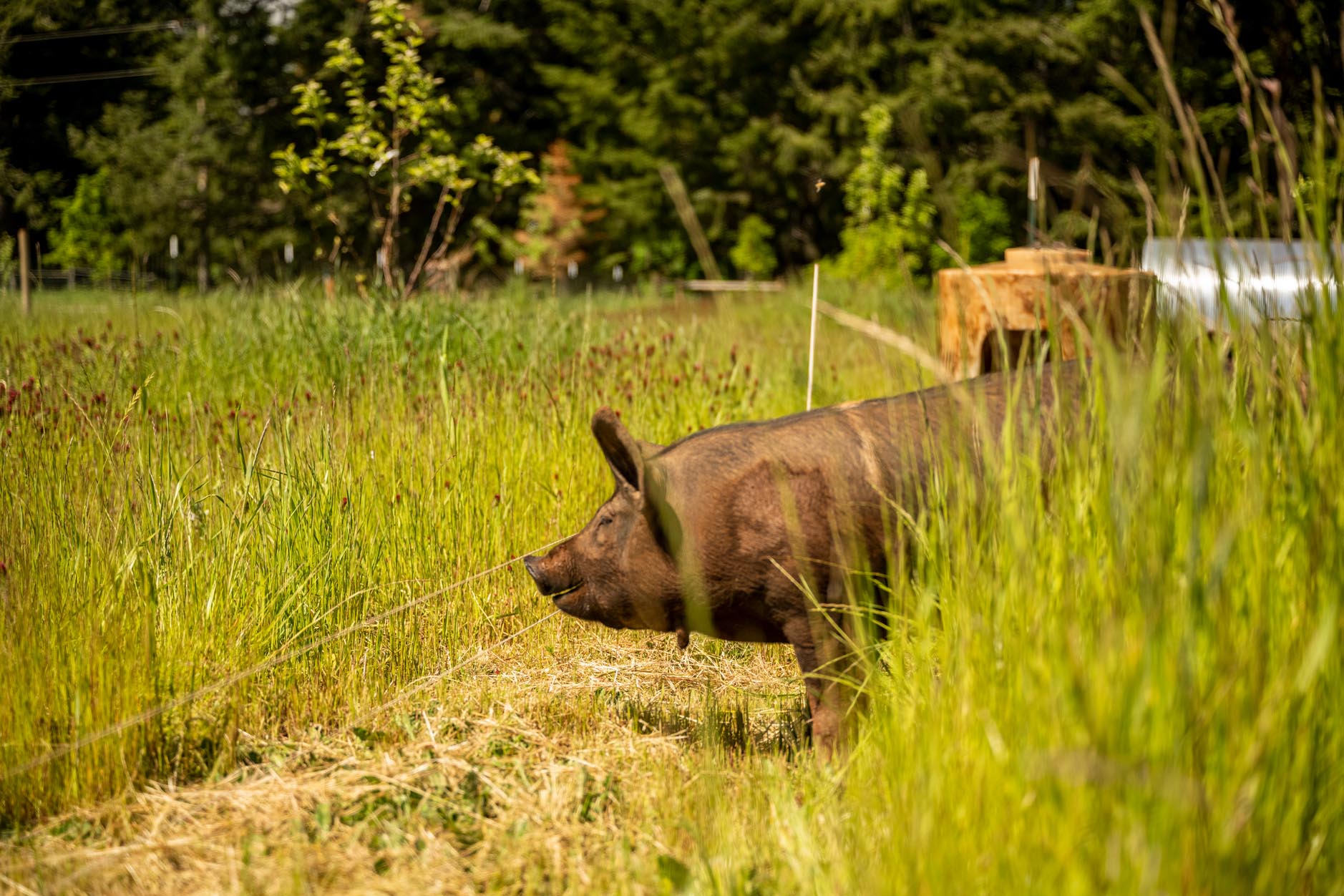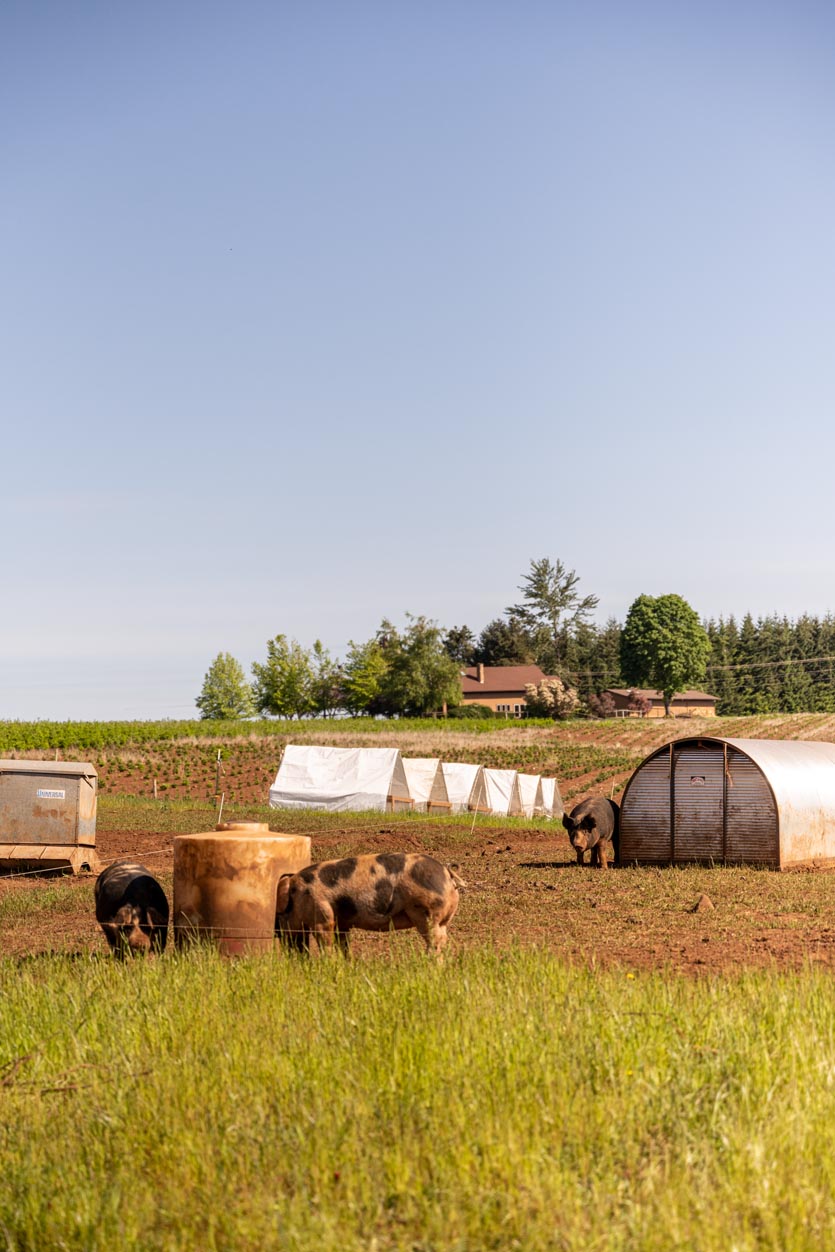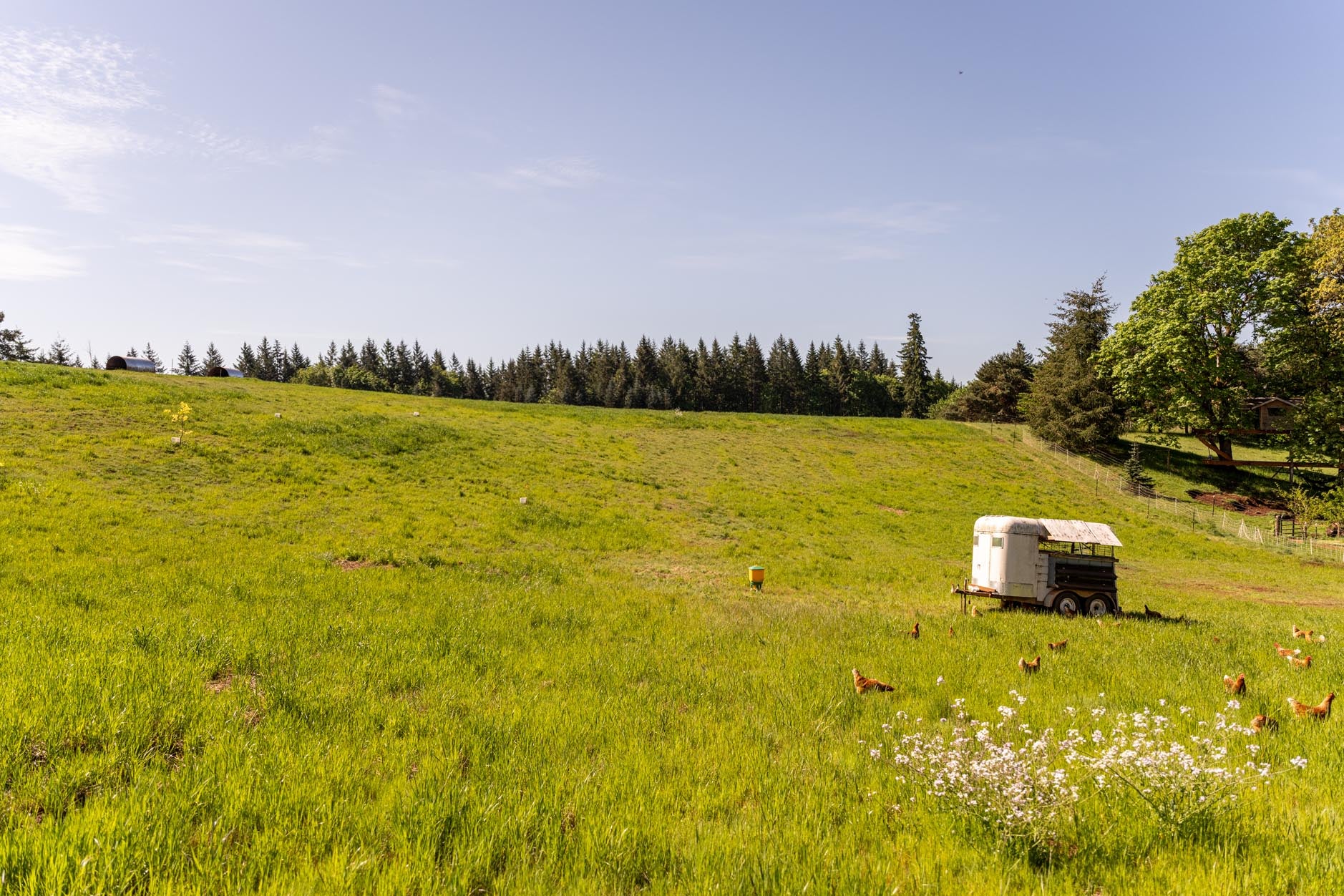Our approach to farming is much different than how most pigs are raised. Our methods are a combination of the “old fashioned” way that honors animals’ instincts and a forward looking consideration for our environment.
Our animals are "pasture raised," which means that they spend their entire lives outside and in an environment as close to their natural habitat as possible. Expression of their natural instincts leads to a healthier, happier animal, and a more nutritious and higher quality product than animals confined in modern meat factories.
We care for our soil and water, and seek to improve it every year through quick rotation of animals, which spreads out their manure and improves growth of forage and cover crops that we seed continuously. At most livestock farms, manure is a liability; here, it's an asset.
Our mission is to reduce livestock stress and produce the highest quality, best tasting product possible for you and your family.
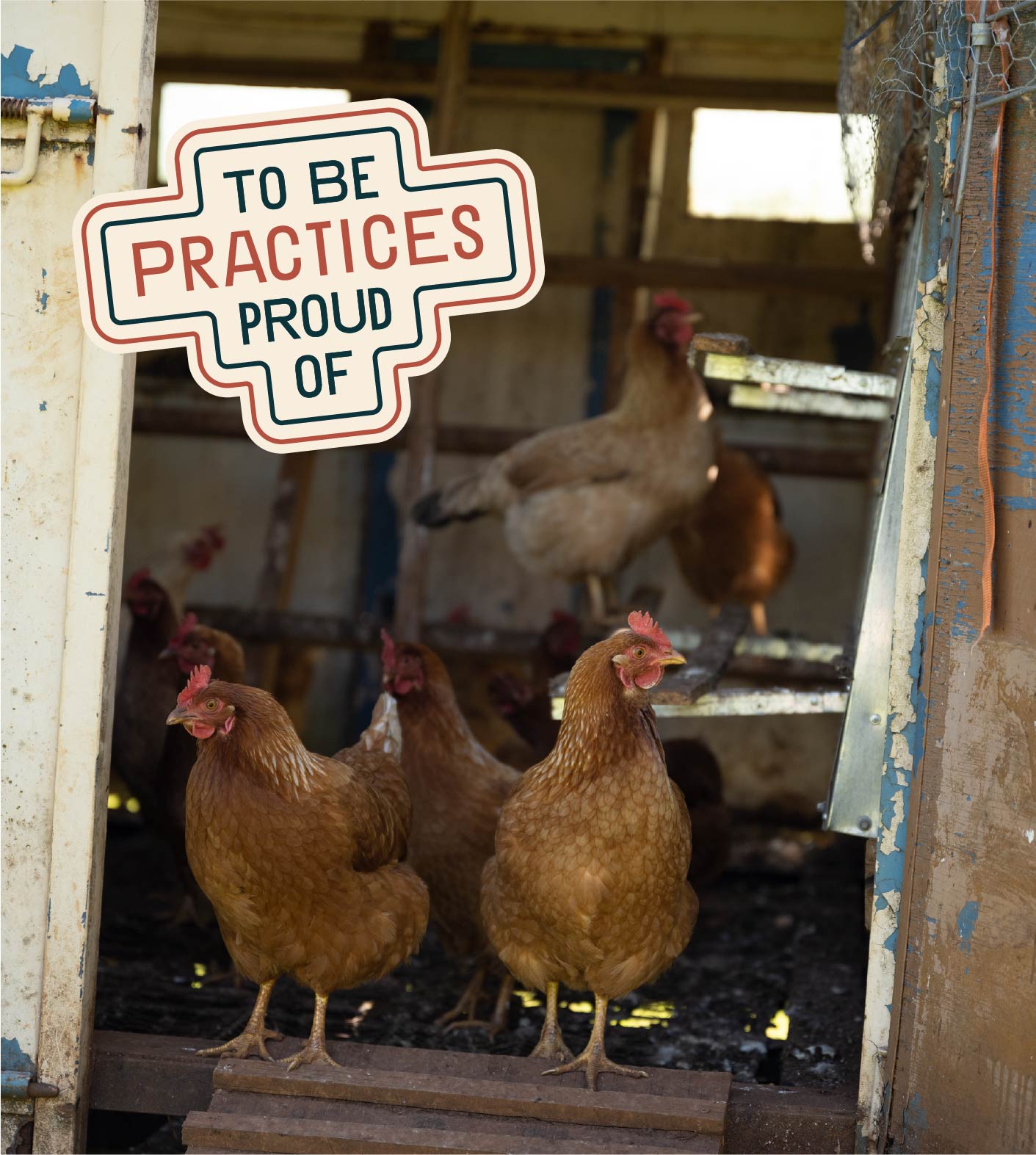
Beyond Organic
The USDA organic standard is a great step toward a sustainable food system, unfortunately when it comes to livestock it doesn't quite go far enough. "Organic" livestock can still spend most of their lives inside in near-confinement conditions. Our standards are higher.
Our pigs are always allowed run freely and root in the soil. Compared to sedentary confinement-raised hogs, this exercise contributes to more flavorful, well marbled and nutritious pork.
As soon as they're ready to withstand the elements, our poultry can peck and scratch in the dirt in half acre paddocks. They eat grass, bugs, worms and whatever else they can find and this diverse diet makes more flavorful birds.
We're guided by a permaculture philosophy called "silvopasture," which calls for a three-tiered, integrated system of plants and animals. At the top is a diverse forest of perennial fruit and nut trees that provide seasonal forage and protection from wind and rain. Underneath is a rotating mix of annual and perennial grasses, legumes, brassicas and other forage crops that promote soil health, water infiltration and absorption and a robust colony of soil microbiology. All of this supports the health and well-being of animals that provide fertility to the system.
CARBON POSITIVE
Modern agriculture is contributing to climate change. But does it have to? Our farm sequesters more carbon than it emits, through a combination of strategies like increasing soil organic matter, preserving and expanding forests, and reducing our footprint. And we've got the receipts to prove it via a multi-year, robust analysis through the Farm Carbon Cutting Toolkit.
Did you know? An acre of soil weighs 2,000,000 pounds and is between 2-8% organic matter. That organic matter (sometimes called "humus," not to be confused with the yummy dip) is 68% carbon! Increasing organic matter even a fraction of a percent has a massively positive impact on carbon emissions. On the flipside, losing organic matter through extractive, mainstream agriculture is, frankly, terrifying.
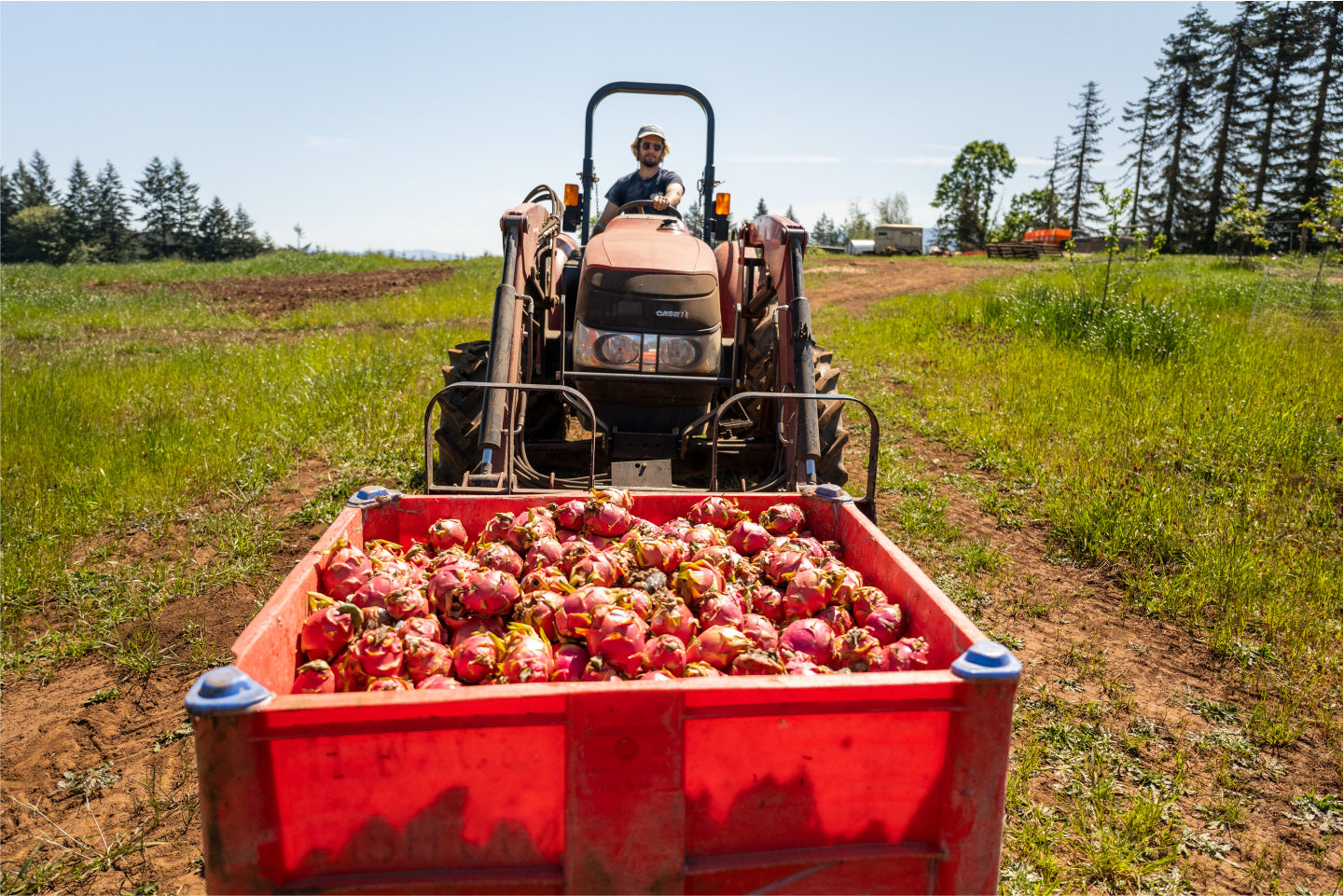
Pigs and poultry are omnivores. They prefer a diverse diet and that keeps them healthy and happy. Unfortunately, there's no such thing as "grass fed" pork or chicken. That's a beef thing and forages alone don't contain the amino acids that omnivores require to stay healthy.

Our animals a eat a no corn-no soy ration of wheat, peas, oats, yeast protein, minerals and amino acids made by a family owned, historic mill (since 1877) that's three miles from our farm.

We plant a diverse mix of annual forages every spring and fall for our animals to munch on as they rotate through our fields under fruit and nut trees that drop treats seasonally.
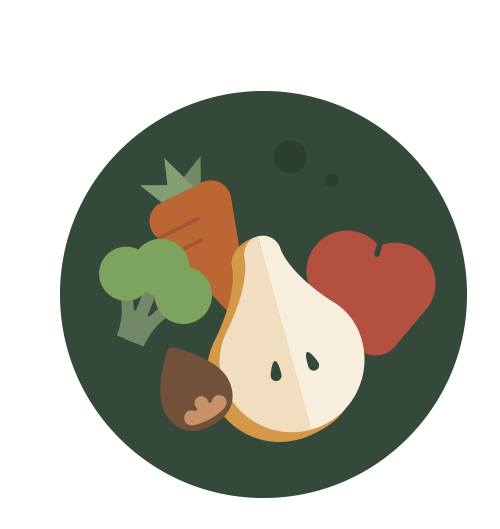
We pick up several tons of fruit and veggies weekly for our animals to enjoy. Wouldn't you prefer your meat eats its veggies?
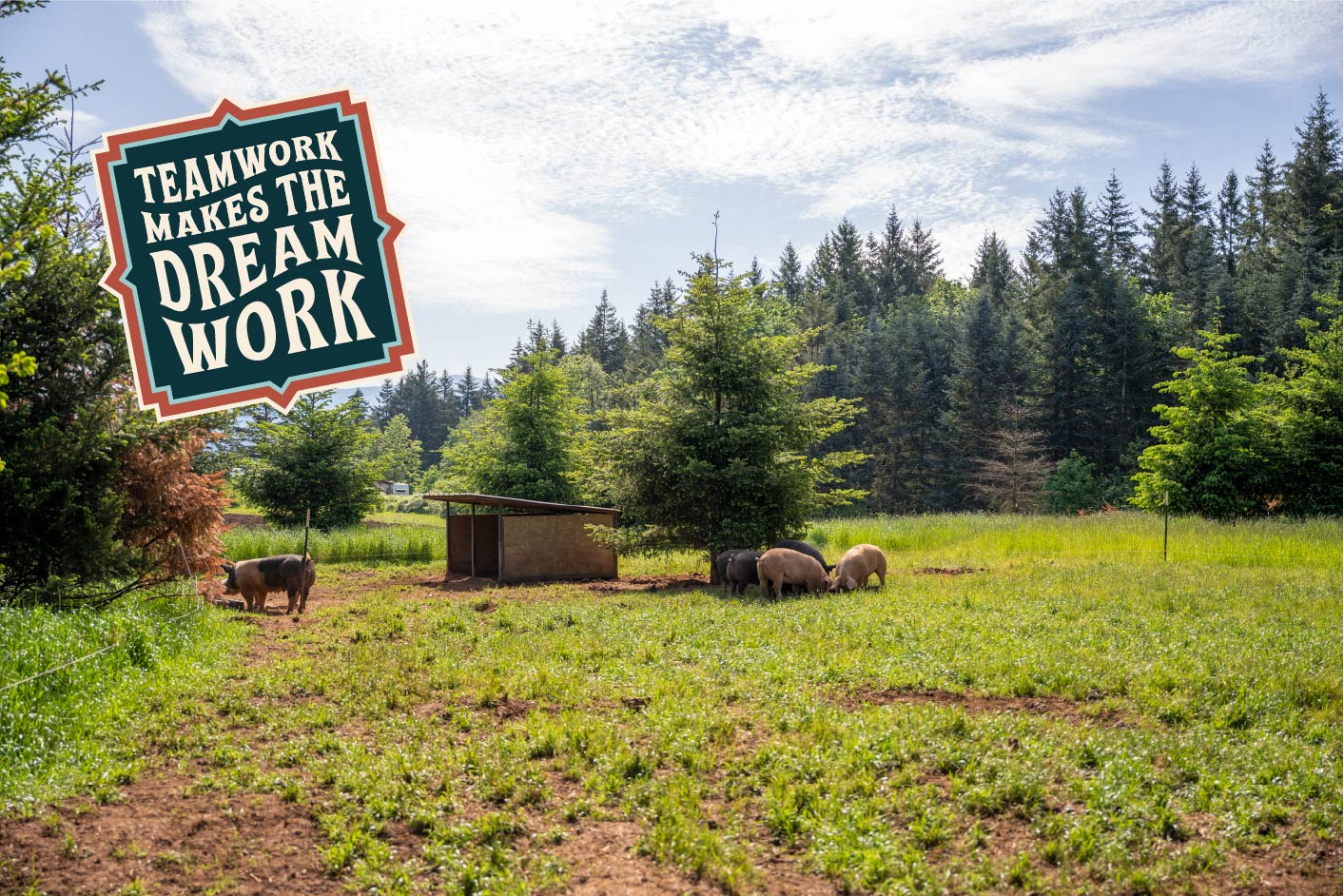
WE'RE IN THIS TOGETHER
We chose our farm location in Oregon carefully. We're forty minutes from the center of Portland, nine miles from our Animal Welfare Approved meat processor, and three miles from a historic, family owned feed mill. These partners are vital to our success and our proximity to them reduces the miles on every pork chop and chicken wing we produce.
